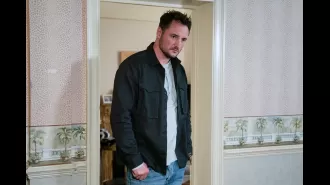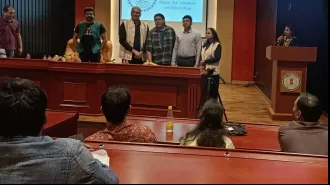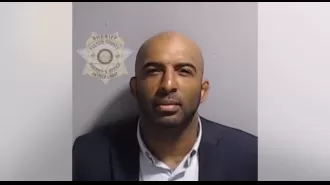Pélicot case exposes shocking reality of sexual violence against women.
It challenges our belief that those closest to us are trustworthy and knowable.
September 10th 2024.

Gisele Pélicot, a 71-year-old woman, has been through a harrowing ordeal that lasted almost a decade. As the trial of her husband, Dominique Pélicot, unfolds in France, it has brought to light a terrifying possibility for women - that they may never truly know the men in their lives or the harm they are capable of inflicting.
During the trial, Dominique, who is also 71, admitted to drugging his wife and inviting strangers to rape her while she was unconscious. He even documented these assaults in thousands of disturbing videos and photographs over a period of nine years. This shocking case has caused a global outcry, with 50 additional suspects identified in the videos now facing charges of aggravated rape against Gisele. In a brave move, she has chosen to waive her right to anonymity in order to raise awareness about sexual abuse.
The men involved in this case range in age from 26 to 74 and come from various backgrounds - a fireman, a nurse, a civil servant, a plumber, a soldier, and a journalist. What connects them is their membership in a now-defunct chatroom dedicated to non-consensual and violent sexual acts.
Gisele Pélicot, who initially described her husband as a "great guy" to the police, was completely unaware of the fact that he was recruiting men online to take advantage of her. It was only when the police discovered the disturbing images in their home in Mazan, Provence, that she learned the truth. In court, she said, "We were together for 50 years, with three children and seven grandchildren, and our friends always saw us as the perfect couple. I just couldn't believe it."
The discovery of thousands of images documenting the abuse in the Pélicot's home has left many people questioning whether we can truly trust those closest to us. This is one of the most terrifying aspects of this already horrendous story. Not only were the perpetrators Gisele's life partner and the father of their children, but they also included men from their local community - some of whom may have families of their own and are considered upstanding members of society.
Dr Elena Touroni, a consultant psychologist and co-founder of The Chelsea Psychology Clinic, explains, "This case is particularly distressing because it reveals the vulnerability of trust within intimate relationships. It shatters the notion that we can fully know and trust the people closest to us." She also adds that for some, this case may trigger anxiety about their own relationships and the fear that something similar could happen to them.
On social media, many people have expressed their shock and disbelief about this case. One Twitter user wrote, "If you can't be safe with your husband, and with your father, in your own house, on your own bed. What's left?" Another tweeted, "Women are never safe. We have to be cautious of every man because it does not matter if that man is your husband, it does not matter if he is your father or a stranger."
Some have also pointed out the fact that this case highlights the grim reality that those closest to us can pose the greatest risk. As statistics show, half of rapes against women are committed by their partner or ex-partner, and six in seven are carried out by someone they know. This has been seen in previous cases, such as Josef Fritzl and Fred West, who committed heinous acts against their own families. Even men in positions of trust, like police officers and school caretakers, have been known to use their status to commit crimes against women and girls.
Dominique Pélicot has been labeled the "monster of Avignon," but he and the other men on trial with him are not the stuff of horror movies. As Dr Elena points out, "Although not all men are rapists or abusers, those who are cannot be distinguished from the men we work, live, and spend our lives with."
Living in a world where stories like this are all too real can be incredibly challenging. Dr Elena advises, "It's natural to feel a heightened sense of fear or distrust, especially when hearing about crimes committed by people who were trusted, not only by their partners but by their communities." However, she also emphasizes the importance of not letting this fear consume us and instead building a sense of internal safety by trusting ourselves to notice red flags, setting boundaries, and maintaining open communication in our relationships.
It is also essential to talk about these fears with friends, family, or a therapist to prevent them from becoming overwhelming or isolating. Dr Elena also reminds us to give ourselves permission to feel these emotions and to seek support if we are triggered by traumatic memories. Engaging in self-care and setting boundaries around news consumption can also help manage the emotional impact of this harrowing case.
Lastly, Dr Elena reminds us that it is okay to ask for help and prioritize our mental health over staying informed. Recognizing the need for support is a powerful step in managing the emotional aftermath of such a distressing news story.
If you or someone you know has been a victim of sexual assault, rape, or abuse, there are organizations that can offer support, both in person and online. It is important to seek help and know that you are not alone. Remember to take care of yourself and prioritize your well-being in the face of such traumatic events.
During the trial, Dominique, who is also 71, admitted to drugging his wife and inviting strangers to rape her while she was unconscious. He even documented these assaults in thousands of disturbing videos and photographs over a period of nine years. This shocking case has caused a global outcry, with 50 additional suspects identified in the videos now facing charges of aggravated rape against Gisele. In a brave move, she has chosen to waive her right to anonymity in order to raise awareness about sexual abuse.
The men involved in this case range in age from 26 to 74 and come from various backgrounds - a fireman, a nurse, a civil servant, a plumber, a soldier, and a journalist. What connects them is their membership in a now-defunct chatroom dedicated to non-consensual and violent sexual acts.
Gisele Pélicot, who initially described her husband as a "great guy" to the police, was completely unaware of the fact that he was recruiting men online to take advantage of her. It was only when the police discovered the disturbing images in their home in Mazan, Provence, that she learned the truth. In court, she said, "We were together for 50 years, with three children and seven grandchildren, and our friends always saw us as the perfect couple. I just couldn't believe it."
The discovery of thousands of images documenting the abuse in the Pélicot's home has left many people questioning whether we can truly trust those closest to us. This is one of the most terrifying aspects of this already horrendous story. Not only were the perpetrators Gisele's life partner and the father of their children, but they also included men from their local community - some of whom may have families of their own and are considered upstanding members of society.
Dr Elena Touroni, a consultant psychologist and co-founder of The Chelsea Psychology Clinic, explains, "This case is particularly distressing because it reveals the vulnerability of trust within intimate relationships. It shatters the notion that we can fully know and trust the people closest to us." She also adds that for some, this case may trigger anxiety about their own relationships and the fear that something similar could happen to them.
On social media, many people have expressed their shock and disbelief about this case. One Twitter user wrote, "If you can't be safe with your husband, and with your father, in your own house, on your own bed. What's left?" Another tweeted, "Women are never safe. We have to be cautious of every man because it does not matter if that man is your husband, it does not matter if he is your father or a stranger."
Some have also pointed out the fact that this case highlights the grim reality that those closest to us can pose the greatest risk. As statistics show, half of rapes against women are committed by their partner or ex-partner, and six in seven are carried out by someone they know. This has been seen in previous cases, such as Josef Fritzl and Fred West, who committed heinous acts against their own families. Even men in positions of trust, like police officers and school caretakers, have been known to use their status to commit crimes against women and girls.
Dominique Pélicot has been labeled the "monster of Avignon," but he and the other men on trial with him are not the stuff of horror movies. As Dr Elena points out, "Although not all men are rapists or abusers, those who are cannot be distinguished from the men we work, live, and spend our lives with."
Living in a world where stories like this are all too real can be incredibly challenging. Dr Elena advises, "It's natural to feel a heightened sense of fear or distrust, especially when hearing about crimes committed by people who were trusted, not only by their partners but by their communities." However, she also emphasizes the importance of not letting this fear consume us and instead building a sense of internal safety by trusting ourselves to notice red flags, setting boundaries, and maintaining open communication in our relationships.
It is also essential to talk about these fears with friends, family, or a therapist to prevent them from becoming overwhelming or isolating. Dr Elena also reminds us to give ourselves permission to feel these emotions and to seek support if we are triggered by traumatic memories. Engaging in self-care and setting boundaries around news consumption can also help manage the emotional impact of this harrowing case.
Lastly, Dr Elena reminds us that it is okay to ask for help and prioritize our mental health over staying informed. Recognizing the need for support is a powerful step in managing the emotional aftermath of such a distressing news story.
If you or someone you know has been a victim of sexual assault, rape, or abuse, there are organizations that can offer support, both in person and online. It is important to seek help and know that you are not alone. Remember to take care of yourself and prioritize your well-being in the face of such traumatic events.
[This article has been trending online recently and has been generated with AI. Your feed is customized.]
[Generative AI is experimental.]
0
0
Submit Comment





